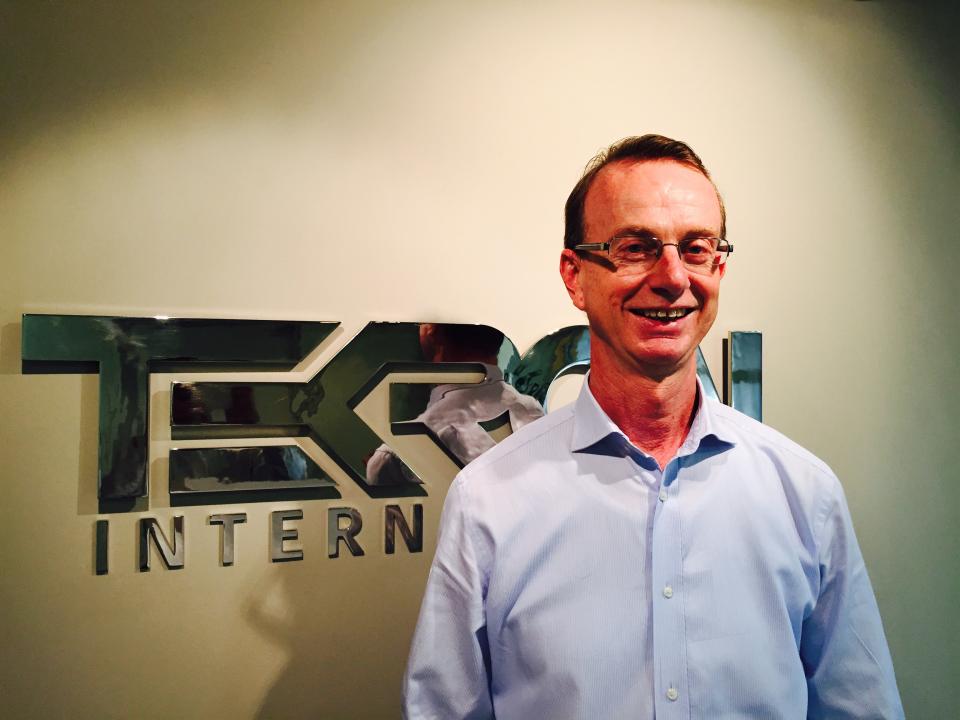Tech company readies for growth, goes nuclear
Monday, 25 May 2015
Wellington based technology company Tekron has just shipped its first ever Chip Scale Atomic Clock based timing solution, marking the successful miniaturization of the technology and the opening of new markets for the company.
The clock will form a critical part of a US$1.1 million upgrade of the Philippines electricity distribution grid by the Philippines National Grid Corporation, with Kiwi technology overtaking former timing super-stars, crystal oscillators. The much smaller chip scale atomic clock runs with reduced power and long term stability, performing three times greater than conventional crystal oscillators.
Use of this 21st century clock synchronisation technology will also future proof the network to allow future upgrades for enhanced grid operation. Privately owned Tekron is well positioned for the next stage of 160 substations, based on its supply of clocks for the initial pilot project to upgrade an initial 16 substations.
The National Grid Corporation of the Philippines (NGCP) is the equivalent of Transpower here, responsible for a distribution grid of some 20,000kms serving metro Manila, North and South Luzon which is the largest grid in the Philippines, accounting for 74 percent of the country’s total power demand.
The project is a perfect fit for Tekron, which provides high precision GPS and atomic clock time-keeping technologies and solutions that synchronise advanced networks and services. These solutions provide critical timekeeping in national power grids, as well as civilian and military networks.
Recently-appointed Tekron CEO, Marc Michel, uses a simple analogy to explain the significance of the company’s tiny technology that packs a highly accurate punch.
“Most people assume that computer clocks in servers, workstations and network devices are inherently accurate, but that’s just not so. Most clocks are set by hand to within a minute or two of actual time and then seldom checked. Also, many of these clocks are maintained by a battery-backed, clock-calendar device that can alter as much as a second per day. That’s not precise enough for the areas we work in, where high speed networks require nano-second accuracy over long periods.
“Accuracy of timing is critical to successful operation, as networks move away from fixed and often dumb architecture towards being smart and able to adapt dynamically to user requirements. Precision timing provides the sequence of events analysis for operation and security, time stamping, quality monitoring, end to end performance monitoring, accurate billing and in the electricity grid synchronization measurements.
Tekron’s major customers include global integrators such as GE, ABB, Mitsubishi Electric and Siemens as well as major electricity transmission grid operators in Australia, New Zealand and the USA.
Michel has come to Tekron with a mandate for rapid growth of the company’s GPS based precision timing solutions for industrial networking.
He said Tekron is another innovative Kiwi technology company setting new standards in technology, with the potential to be a global leader in timing solutions, and was poised to translate this into global success.
He believes his background, in Navman and more recently with global technology company BCS Group, will boost the company’s growth plans.
“We see significant growth for the company in our traditional electricity market as grid operators all move toward more intelligent grids(Smartgrid) along with significant growth demand from emerging economies whose grids require major upgrades to meet the demand and reliability requirements from an ever growing power hungry middle class.
Alongside this central focus we see good opportunities in the adjacent verticals of telecommunications and industrial applications such as banking and offshore oil exploration”.


